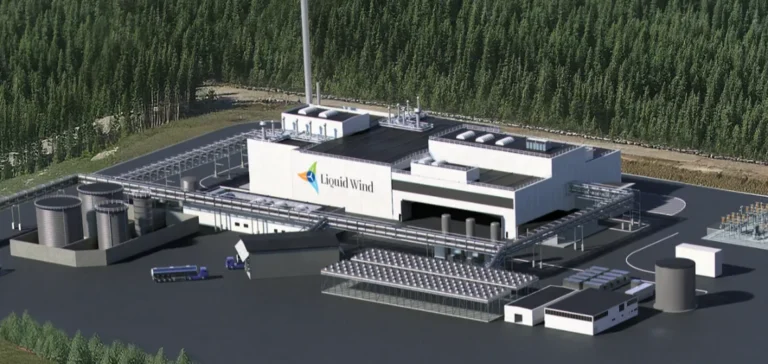Liquid Wind and Umeå Energi have formalised the execution phase of their joint industrial project in Umeå, northern Sweden. The two companies have signed all necessary agreements to commercialise a large-scale eFuel production facility, following the granting of an environmental permit by the local Land and Environmental Court.
The project, named FlagshipTHREE, will be integrated with Umeå Energi’s cogeneration plant Dåvaverket, located within the Umeå Eco Industrial Park. The facility aims for an annual production capacity of 100,000 tonnes of eMethanol, generated from green hydrogen and biogenic carbon dioxide. Using Carbon Capture and Utilisation (CCU) technology, up to 150,000 tonnes of CO₂ will be extracted from the natural cycle each year.
A strategic investment for northern Sweden
The plant represents one of the largest industrial investments in the region and is part of a development strategy focused on circularity, electrification, and carbon neutrality. The Umeå Eco Industrial Park is designed to foster industrial symbiosis, allowing local players to share material and energy flows to reduce emissions and minimise waste.
Construction is scheduled to begin in 2026, with operations expected to commence in 2028. The site is built on partnerships between public and private companies, thereby strengthening local supply chains and energy infrastructure.
Boosting domestic eFuel production
The scale-up of synthetic fuels contributes to strengthening energy sovereignty by reducing reliance on imported fossil fuels. This project also aligns with European objectives for energy security and decarbonisation of hard-to-electrify sectors such as maritime and aviation transport.
According to figures released by the two partners, the projected climate impact would amount to a reduction of 180,000 tonnes of CO₂ annually. The project is positioned as a strategic initiative, with potential for replication at the European level to meet growing demand for alternative fuels.






















